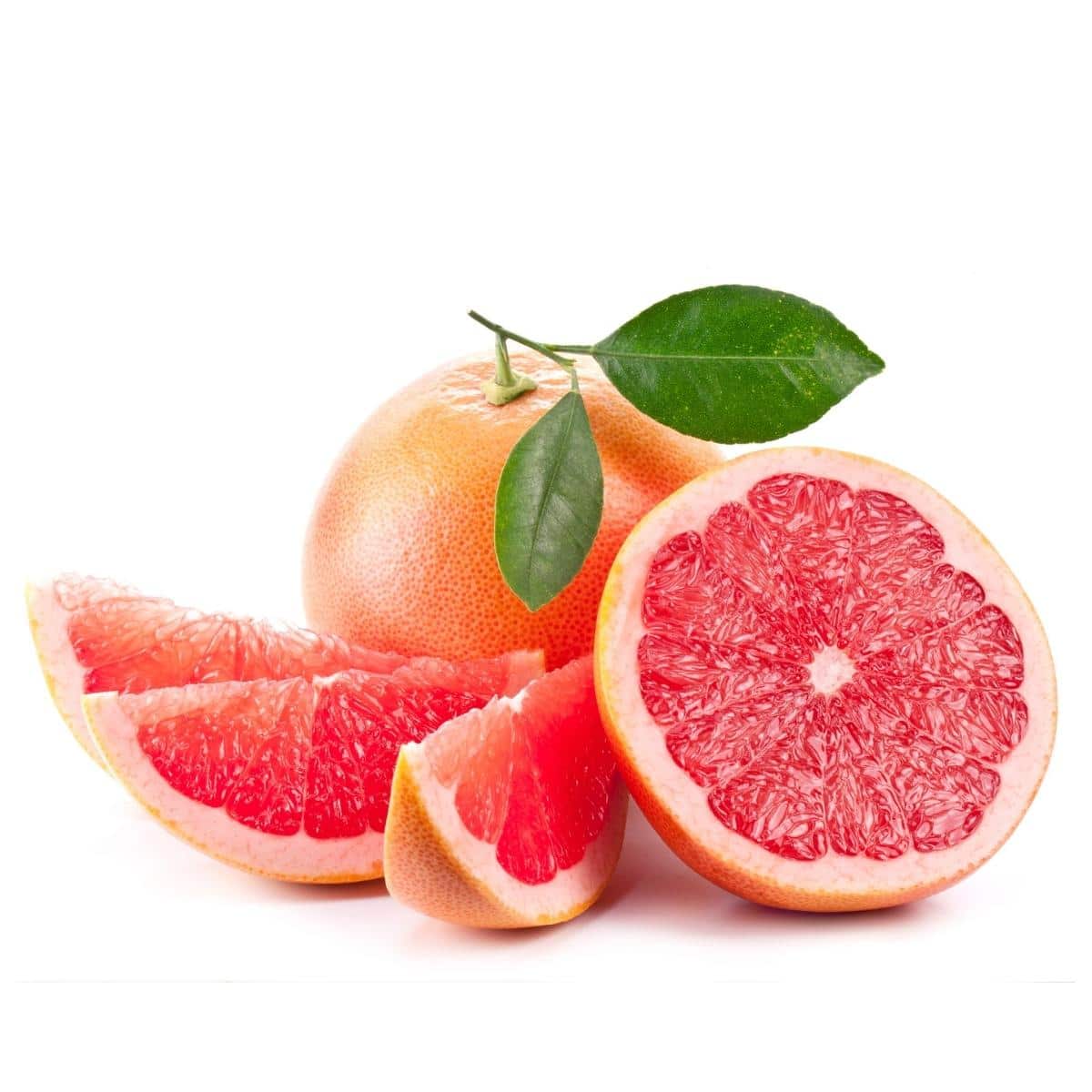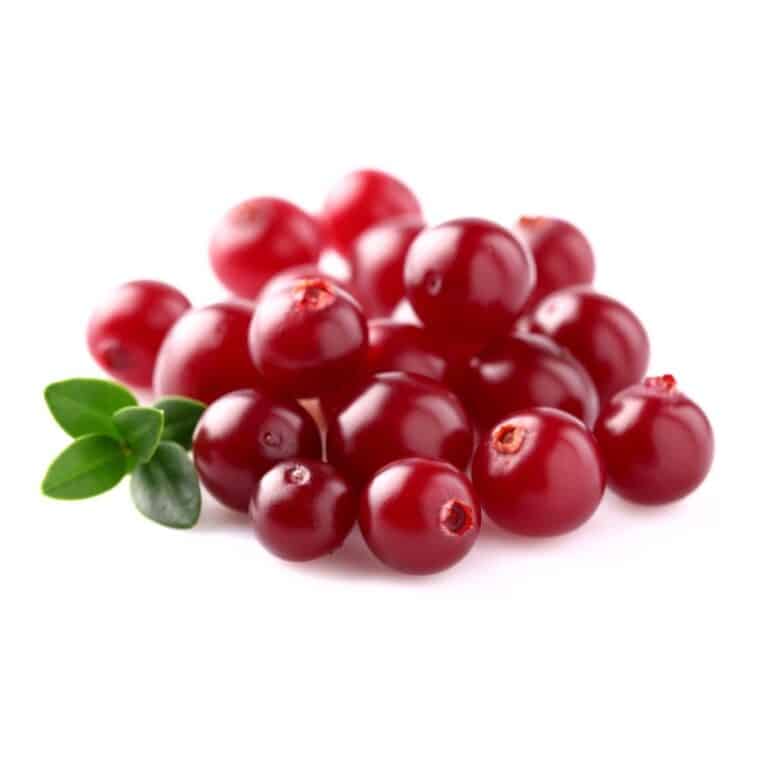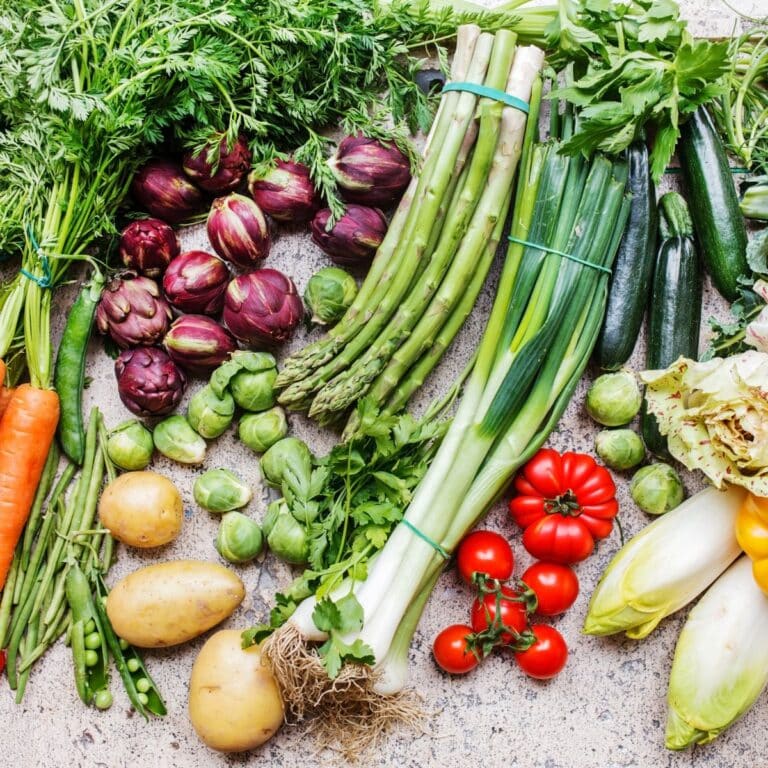Can I Eat Grapefruit On A Kidney Diet?
Are you looking for a way to add some nutrition and flavor to your meals? Individuals with kidney disease are often in search of ways to improve health and help prevent further kidney function decline.
Grapefruit may be the answer. From its vibrant color to its sweet-tart taste, grapefruit offers an array of health benefits that can make it an ideal addition to any diet – even those with special dietary needs such as kidney diets.
But before you reach for this juicy citrus fruit, let's take a closer look at how eating grapefruit on a kidney diet affects your body’s metabolism and overall health.

Grapefruit and CKD
Grapefruits are packed with essential vitamins, minerals, and antioxidants that can help boost immunity and reduce inflammation in the body. Eating grapefruit may also promote healthy digestion, support heart health, improve circulation, lower cholesterol levels, regulate blood sugar levels, and aid in weight loss efforts.
With all these potential benefits associated with eating this nutritious citrus fruit, individuals with chronic kidney disease (CKD) may be wondering whether it’s safe to eat grapefruit on a renal diet.
If you have been diagnosed with chronic kidney disease, then you know that making changes to your diet is key to maintaining good health. Kidney diets usually consist of limiting protein intake while increasing consumption of fruits and vegetables like carrots, spinach, apples - but what about grapefruit?
The short answer is yes! It can be eaten in moderation along with other recommended foods from the renal diet food list pyramid guidelines. You can enjoy grapefruit without compromising your wellness goals or putting additional stress on your kidneys.
Jump to:
- Grapefruit and CKD
- Role Of Citrus Fruits In A Kidney Diet
- Overview Of Grapefruit Nutrition Profile
- Benefits And Risks Of Eating Grapefruit On A Kidney Diet
- What To Consider When Eating Grapefruit With Kidney Disease
- Interaction Between Grapefruit And Medication
- Other Citrus Fruits To Include In Your Diet
- FAQs for Grapefruit & CKD
- Yes, You Can Eat Grapefruit on a CKD Diet!
Role Of Citrus Fruits In A Kidney Diet
Citrus fruits such as grapefruit can be an important part of a kidney diet, particularly for those with chronic renal disease. The high content of vitamin C in citrus fruits helps to support the immune system and may even reduce inflammation associated with conditions like lupus nephritis or polycystic kidney disease.
However, there may be a significant amount of potassium found in some citrus fruits like oranges and grapefruits. Hence moderation is still key in balancing the effects of consuming these fruits.
Moreover, it's important to note that not all citrus fruits are suitable for people on a kidney diet due to their high acidic content. For instance, lemons contain more citric acid than other types of citrus fruit which could cause irritation or acid imbalances that cannot be managed by weakened kidneys.
Furthermore, citrus fruits have some diuretic effects, so consuming them excessively may be dangerous especially for those in the advanced stages of kidney disease.
Therefore, if you're considering including citrus fruits into your diet while managing a kidney condition, speak with your doctor first who can offer advice tailored specifically to your individual health needs.
Your renal dietitian can also help in making a meal plan that includes just the right amount of citrus fruits in your diet. This way, you will know exactly how many servings per day would be appropriate and safe for your overall well being.
For More Recipes and Ideas --->> Get Your Free Meals and Recipes That Are Perfect for Pre-Dialysis Diets, Pre-Dialysis with Diabetes, or Dialysis Diets.
Overview Of Grapefruit Nutrition Profile
Grapefruit is a citrus fruit that is packed with nutritional value, making it an ideal choice for those looking to incorporate healthy eating into their daily renal diet menu plan. It's rich in vitamins and minerals, as well as dietary fiber and antioxidants. Here are some nutrition facts about grapefruit:
- Vitamins & Minerals: Grapefruit contains high levels of vitamin C and potassium, both essential nutrients for good health. Vitamin C helps protect your body from infection and disease while potassium supports proper muscle functioning and cardiovascular health.
- Antioxidants: Eating grapefruits may help reduce the risk of certain chronic diseases due to its high antioxidant content which can work to neutralize harmful free radicals in the body.
- Fiber Content: One cup of grapefruit provides approximately 5 grams of dietary fiber—roughly 20% more than an apple! The high-fiber content aids digestion by helping food move through the digestive system quickly and efficiently.
- Low Calories: With only 37 calories per serving, grapefruit makes a great snack or side dish for those trying to watch their calorie intake without sacrificing taste or flavor.
Overall, grapefruit is a nutrient-dense addition to any diet plan thanks to its wide range of vitamins, minerals, antioxidants, dietary fibers, and low calorific value – all working together to promote long-term health benefits!

Benefits And Risks Of Eating Grapefruit On A Kidney Diet
Grapefruit is a popular citrus fruit that can be enjoyed in many forms, from juicing to baking. But if you're on a kidney diet, it's important to know the potential risks and benefits of eating grapefruit.
Here we explore this further and provide an overview of grapefruit health benefits for those with kidney disease as well as any associated risks that should be taken into consideration.
| Benefits | Risks |
| Rich in antioxidants | Interaction with certain medications |
| May reduce inflammation | Too much potassium or phosphorus content |
| Low-calorie snack option | Exacerbate existing medical conditions |
| High source of vitamin C | High acid content may damage teeth enamel |
The key nutritional components found in grapefruits are vitamins A and C, dietary fiber, thiamin, folate, pyridoxine, copper, and pantothenic acid. Grapefruits also contain bioactive compounds such as limonoids and flavonoids which may have protective effects against some types of cancer.
As far as other health benefits go, research has suggested that regular consumption of grapefruit juice may help reduce insulin resistance in individuals with type 2 diabetes. Furthermore, consuming one serving per day may even lower blood pressure levels when combined with lifestyle changes.
On the flip side however, there are several risks associated with consuming too much grapefruit while following a kidney diet. This includes having high potassium levels or too much phosphorus content.
These substances may accumulate in the bodies of those with weakened kidneys, which can lead to harmful complications. Additionally, it’s important to note that grapefruits can interact negatively with certain medications so it’s best to check with your doctor before incorporating them into your daily routine. You can look into how grapefruit interaction with certain medications for kidney disease works.
Lastly, people with existing medical conditions should exercise caution when introducing new foods into their diets - especially ones high in sugar like juices - since these could potentially exacerbate their symptoms or cause adverse reactions.
All things considered, adding grapefruits to a healthy diet appears to offer numerous beneficial properties without severe risk factors involved - just remember to always consult your physician first!
What To Consider When Eating Grapefruit With Kidney Disease
Adding grapefruit to one’s renal diet must be approached with caution. With its potential benefits and risks, it's important to consider what to look out for when adding this citrus fruit to your diet. As always, it’s best to be guided by your physician and renal dietitian.
Here are three key things to keep in mind when eating grapefruit on a kidney diet:
- Look at potassium levels: Eating too much of certain fruits can increase the amount of potassium in your blood, which can lead to dangerous health complications if left unchecked. To stay within safe limits, check nutrition labels or consult a professional before consuming any food high in potassium such as grapefruit.
- Be mindful of toxic compounds: Grapefruits contain compounds called furanocoumarins that can interfere with drug metabolism and make some medications ineffective or too active–both may lead to complications. If you take medication regularly, talk with your doctor about whether it’s okay to incorporate grapefruit into your daily routine.
- Limit intake: Even though they may have beneficial properties, like anything else eaten in excess, there could be an adverse effect from consuming too much grapefruit over time. Therefore, try not to exceed one serving per day (about half of a medium sized fruit) and always eat them alongside other foods in order to get all their necessary nutrients while avoiding overload.
With these, enjoying the occasional slice of grapefruit is perfectly fine as part of a balanced diet - so long as you practice moderation and pay attention to how it affects your body specifically. You can always study portion control for CKD patients.
When used judiciously and under medical guidance if needed, this tasty treat can provide valuable nourishment without sacrificing flavor or quality of life.

Interaction Between Grapefruit And Medication
Grapefruit is a delicious citrus fruit that can be part of a healthy diet. But for those on kidney diets, it’s important to understand the potential interactions between grapefruit and medication.
Some medications have been found to interact with grapefruit due to its high concentration of certain compounds like furanocoumarins. These compounds can alter the way the body processes some drugs, which could affect the effectiveness of the drug.
Drugs may either be too active or ineffective as a result of this interaction, and this could lead to dangerous medication side effects.
Some of the medications with potential drug interactions include prescription drugs like cholesterol-lowering drugs, diabetes medications, heart drugs, anti-anxiety medications, antineoplastic drugs, antiseizure medications, blood-thinning medications, and even over-the-counter drugs like nonsteroidal anti-inflammatory drugs.
This is not a complete list of drugs which grapefruit can affects, hence, it’s best to check with your doctor if you are taking any medications before consuming grapefruit or other citrus fruits.
To sum up, understanding how grapes and other citrus fruits interact with medication is essential for anyone on a kidney-friendly diet who takes prescription medications.
Eating grapefruit without first consulting a doctor could potentially cause dangerous side effects, so it's wise to take extra precautionary measures when planning meals around such foods and medicines.
Other Citrus Fruits To Include In Your Diet
It is thought that citrus fruits provide a range of health benefits, from reducing inflammation to aiding digestion. But can they be included in a kidney diet?
The short answer is yes! Citrus fruits like lemons and oranges (oranges and kidney disease) are full of nutrition and offer several potential benefits for those with kidney disease.
| Benefits | Fruits | Nutrients |
| Anti-inflammatory properties | Lemons, Oranges, Grapefruits | Vitamin C, Fiber, Potassium |
| Improved digestion | Lemons, Limes | Vitamin A, Calcium, Magnesium |
| Increased energy levels | Oranges, Tangerines | Vitamins B1 & B2; Iron; Copper |
All these nutrients have been linked to improved renal function as well as better overall wellbeing. Plus, the natural sweetness of some citrus fruits makes them an excellent alternative to added sugars or artificial sweeteners.
So while grapefruit may not fit into your specific diet plan due to its high potassium content or their potential to interact with medications you take, there are still plenty of other options available for getting your daily dose of vitamin C and fiber.
When it comes to incorporating citrus fruit into your meal plans consider adding lemon slices to water or tea for an extra boost of flavor and antioxidants. Orange segments make a great snack when you’re on the go or feeling low on energy. Plus, their rich color provides a much needed visual pick-me-up!
And if you don’t care for the tart taste of limes, try mixing them with honey or agave syrup for a sweeter option. Just be mindful of your sugar intake when adding anything to your fruits as excess sugar can wreak havoc on your blood sugar levels.
FAQs for Grapefruit & CKD
Most citrus fruits contain high amounts of potassium. Grapefruit is known as a high-potassium fruit. Grapefruit juice contains about 400 mg of potassium per cup and that is relatively high compared to other fruits.
If say, we can produce a cup of pure grapefruit for a medium-sized fruit, one can consume as much as 200 mg of potassium for a half grapefruit.
If a renal diet restricts one to consume only up to 2000 mg of potassium a day, half of grapefruit already will take up 10 percent of that restriction. We can take in potassium from many sorts of foods in minimal amounts; if these are added together, we can go beyond the restriction of 2000 mg of potassium a day.
Hence, when planning to consume grapefruit, keep in mind to avoid other potassium-rich foods such as high-potassium vegetables on the same day. It's not uncommon to be on a low potassium diet when you are dealing with CKD.
For those on a kidney diet, there is no one-size-fits-all answer when it comes to the frequency of eating grapefruit. While this fruit is known for its many health benefits, excess consumption can also lead to problems so it should be consumed in moderation. But how much is too much?
It's important to remember that everyone's dietary needs are different, so what works for one person may not work for another. The amount of grapefruit you consume will depend on your particular medical condition, age, sex, and other factors such your residual kidney function.
Consuming large amounts of grapefruit or other citrus fruits can cause accumulation of phosphorus or potassium, so one should be careful. Talk with your doctor or registered renal dietitian about the best approach for getting all the nutrients you need while still protecting your kidneys from too much strain.
In addition to consulting with a healthcare professional, do some research online about what experts recommend regarding eating grapefruit on a kidney diet - specifically look into guidelines related to frequency and portion size. This way, you have an understanding of what others have experienced as far as successful strategies go.
Furthermore, try out various recipes featuring citrus fruit that fit within these parameters and find ways to make them enjoyable! With proper care and oversight, you can easily incorporate healthy amounts of grapefruit into your kidney diet plan without overdoing it.
Grapefruit is a delicious and nutritious citrus fruit, but if you have kidney disease, it may be important to consider the special preparation of grapefruit for optimal health benefits. Fortunately, there are some simple steps that can help you make sure your diet includes this beneficial fruit while keeping your kidneys healthy too!
When considering how best to prepare grapefruit for maximum nutrition and benefit, it's important to remember that certain compounds in the peel can interfere with certain medications used by those with kidney disease. For this reason, peeling the skin off before eating the flesh is recommended.
Additionally, slicing away any white pith or membranes will reduce bitterness and increase sweetness. These preparatory measures are especially useful when making juice from fresh grapefruit.
However, canned grapefruit juices should always be avoided as they often contain added sugars which can aggravate existing conditions and cause elevated blood sugar levels, especially for those with diabetes.
These simple techniques can help you enjoy grapefruit while on a kidney diet, while minimizing the risks associated with eating this fruit. Check out this list the best fruit for dialysis patients.
This question is an important one to consider when trying to maintain a healthy kidney diet. It's important to understand the potential benefits of incorporating this fruit into our diets in any form - including grapefruit juice beverages.
Grapefruit has long been known for its health benefits and its ability to help cleanse toxins from our bodies. Drinking grapefruit juice can be just as beneficial as consuming the actual fruit, but with some caveats.
Because pure grapefruit juice contains all of the nutrients that are found in whole grapefruits, it can provide a great source of vitamins A and C along with other minerals like potassium and magnesium which are essential for good overall health.
However, drinking too much can lead to high blood glucose levels in your system which could cause problems for those following a kidney diet. So if you are looking into buying prepared grapefruit juices, make sure to always read the food labels that come with it.
The best way to guarantee you're getting all the goodness out of this citrusy treat while staying within dietary guidelines is to consume freshly squeezed or cold-pressed juices instead of store bought varieties.
These fresh juices contain only natural sugars without added preservatives or sweeteners that may not work well if you have certain pre-existing conditions such as diabetes or kidney disease. Following a diabetic renal diet meal plan seems to be the easiest way to know what works and what doesn't work.
Additionally, they tend to have higher concentrations of antioxidants than store-bought brands so you'll get more bang for your buck!
In order to ensure optimal nutrition and taste, look for organic ingredients whenever possible; many local farmers markets carry organic produce year round that can be used to make fresh juices at home each day.
When consuming grapefruit juice, always be mindful of your fluid intake as drinking too much of this can lead to complications like water retention.
Shopping for grapefruit can be a tricky business, especially if you're on a kidney diet plan. It's important to take some special precautions when selecting this fruit so that you get the best quality.
Here are 3 tips to make sure that your shopping experience is a success:
1. Choose wisely - Look for firm fruits with smooth skin and no blemishes or bruises. The deeper the color of the rind, the more flavorful the flesh will be. Avoid buying overly soft or shriveled grapefruits as they may have an unpleasant taste.
2. Organic matters- If possible, opt for organically grown produce over conventionally farmed options, which may contain pesticide residues. Additionally, organic varieties tend to have more antioxidants than non-organic ones due to their richer soil environment.
3. Storage savvy- Don't forget proper storage! Place freshly bought grapefruits in a cool dark place away from direct sunlight and keep them refrigerated once they’ve been cut open. This will help preserve its flavor and ensure it stays safe from bacteria which can cause spoilage quickly.
When it comes down to it, being mindful of these simple steps will help guarantee that your next purchase of grapefruit is of the highest possible quality!
Whether you decide to eat it fresh or use it as part of your favorite recipes, taking these extra precautions while shopping for grapefruit will ensure that you reap its nutritional benefits at its best.
There are several other citrus fruits that could provide great health benefits and work well with a kidney diet - making them an even better choice than grapefruit.
Are oranges good for kidneys? With its high levels of vitamin C and antioxidants, oranges have been long known as one of nature’s superfoods. However, oranges are also known among high-potassium foods and this is important as too much of it can cause problems in people with diseased kidneys.
On the other hand, they boast low sodium content and less acidity compared to grapefruits; two qualities that make them ideal for those managing their salt intake or suffering from chronic kidney disease (CKD).
Lemons and limes offer similar nutritional value but differ on the taste front due to their tartness. Lemons are especially useful when dealing with CKD as they help reduce inflammation while fighting infection.
Meanwhile, both lemons and limes contain citric acid – great news for anyone with high uric acid levels or gout. Plus, these delicious fruits add flavor without having to resort to salt or sugar!
Making smart food choices can seem daunting at first but knowing about alternative options makes it easier - especially when understanding what works best for your individual health concerns.
With all these different varieties of citrus fruit available, kidney patients have fresh options in adding more nutrition-rich items in the diet.
Yes, You Can Eat Grapefruit on a CKD Diet!
Eating grapefruit on a kidney diet can be beneficial if done in moderation. Eating one half of a medium-sized grapefruit no more than three times per week is recommended for those with normal kidneys. Hence, people with kidney disease must consume less than this.
When shopping for grapefruit, there are special precautions to keep in mind to make sure you get the best quality fruit possible. Plus, look for other citrus fruits like oranges and lemons which may have even greater health benefits as well!
All that said, it's important to note that following a balanced kidney-friendly diet should always take precedence over adding any single food item such as grapefruit. In this way, one can better manage their chronic kidney disease at any stage in the most delicious and most nutritious way possible!














